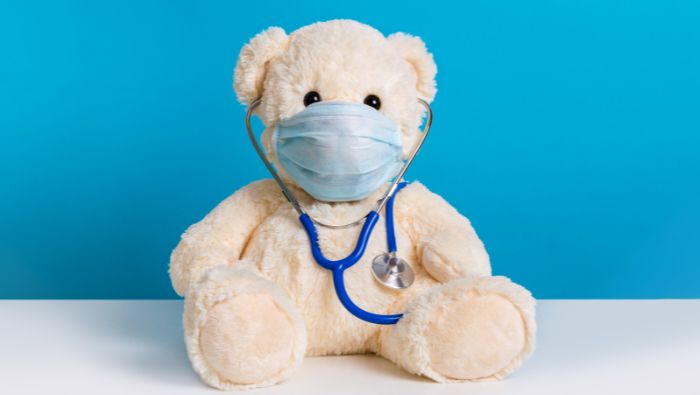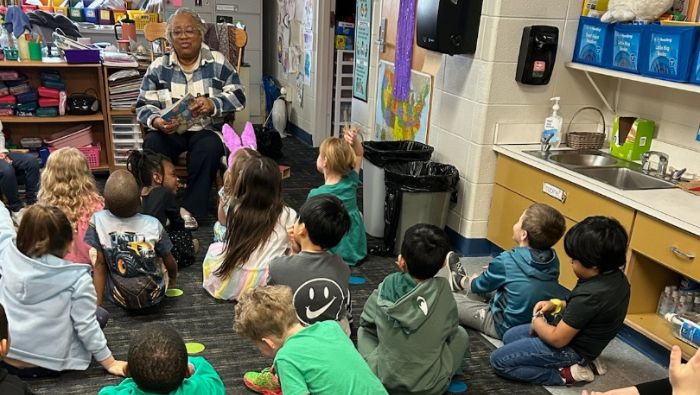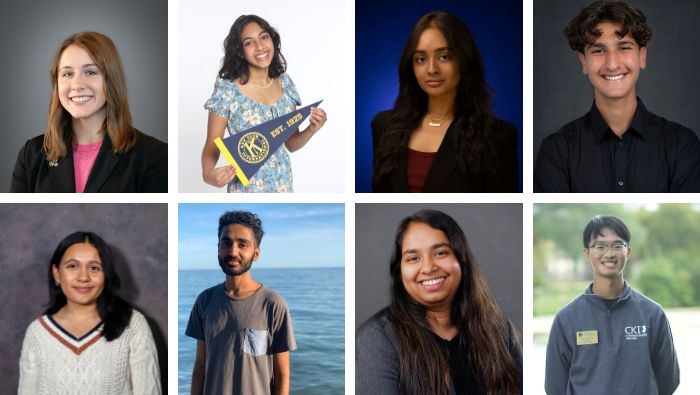The Kiwanis Children’s Fund honors 8 Key Club and CKI scholars.
By Erin Chandler
The eight outstanding students who received this year’s Kiwanis Children’s Fund scholarships show a special dedication to leadership and mentorship — and to ensuring everyone has equal access to the resources they need. Each recipient says that the values and skills they have learned in Key Club and Circle K International (CKI) will form the basis for the difference they’ll make. In fact, each of these brilliant scholars is already paving the way for those who will come after them. And some of them are already planning to join Kiwanis!
The Children’s Fund is honored to help them continue their education in the upcoming academic year.
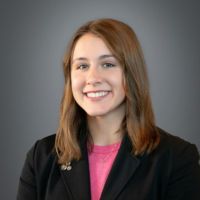
Paige Hein
Linda Canaday Memorial Scholarship
Paige Hein recently graduated from Washington Township High School in Indiana, U.S. She was elected vice president of her Key Club in her freshman year, and she went on to serve as club treasurer, Key Leader student facilitator and lieutenant governor before becoming governor of the Indiana District. Hein’s governorship focused on raising funds and awareness for environmental sustainability. In addition, she is the cofounder and director of sustainability for the nonprofit 4SEE (Sustainability, Equity and Education). As an intern for Earth Charter Indiana, she engaged with young people and legislators in her state to advocate for the environment. Among her many service roles, Hein was lead facilitator of youth recommendations for the United Nations on the Sustainable Development Goal for climate and copresenter of the youth track at Earth Charter Indiana’s Climate Leadership Summit. She plans to study environmental sociology at the University of San Francisco before pursuing a career in the United Nations Environment Programme. Hein pledges to use the leadership skills she gained through Key Club “to fight for a more equitable world.”
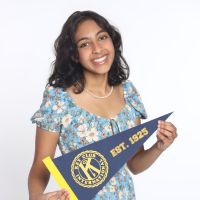
Erina Haque
Wagner Family Scholarship
Erina Haque is a recent graduate of Lake Braddock Secondary School in Virginia, U.S. Haque served Key Club at the district and international levels in positions that include Capital District governor. Her focus as governor was on expanding equity — she opened conversations about discrimination and hate speech, created district member representative positions to advocate for marginalized populations, and founded the District Language Services Committee to translate important Key Club documents into more languages. Outside of Key Club, Haque served as international director of public relations for Mind4Youth, one of the largest youth-led mental health nonprofit organizations in the world; captain of her school’s debate team; editor-in-chief of The Bear Facts newspaper; and president of the Social Studies Honor Society. With the Harvard Strategic Training Initiative for the Prevention of Eating Disorders, she led a team lobbying for legislation to ban the sale of over-the-counter weight loss drugs to minors. During an internship with the U.S. Department of Housing and Urban Development, she designed and presented a new model for increased funding access for small business owners in developing nations. After studying international relations, government and political science at Vanderbilt University, Haque plans to run for political office, where she will “lead with care, challenging uninclusive social structures and building a better world for all.”

Sameen Enam
Kiwanis Children’s Fund Scholarship
Sameen Enam was a member of Baton Rouge Magnet High School Key Club in Louisiana, U.S., for four years before graduating this year. She began as bulletin editor for her club and the Louisiana-Mississippi-West Tennessee District before being elected district governor. As governor, Enam launched and led the “Pour It Forward” campaign to fund a freshwater well through Thirst Project. She was also vice president and cofounder of her school’s Animal Rights Preservation Club, assistant choreographer and historian for the Indian Student Association and technology coordinator for the Junior Classical League. In pursuit of her goal to become a biomedical engineer, Enam has shadowed physicians across hospital departments and is working with researchers at Louisiana State University’s College of Engineering to develop bioimaging techniques for detecting pancreatic cancer. “In biomedical engineering, I plan to apply my leadership skills to drive innovation and advocate for equitable healthcare solutions,” she says. Enam plans to attend Georgia Institute of Technology next year.
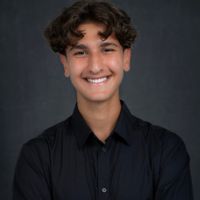
Mohammed Ali Al-Sabeh
Kiwanis Children’s Fund Scholarship
Mohammed Ali Al-Sabeh recently graduated from Crestwood High School in Michigan, U.S. He served the Crestwood High School Key Club as underclassmen director and president before going on to positions at the district and international levels, including as an international trustee. In his first year of Key Club, Al-Sabeh launched the “Mittens for Michigan” project, which has provided over 600 giant mittens filled with comfort items for pediatric cancer patients. He also helped his school’s Key Club grow from 30 members to more than 100. In addition to shadowing medical professionals as an intern, Al-Sabeh is a math instructor at the Mathnasium Learning Center, where he has organized a monthly raffle and STEAM (Science, Technology, Engineering, Arts and Math) Day to motivate his students. His mentorship has extended to roles in Aspire United Education’s STEM Mentorship Program and Crestwood Science Club, and to volunteer student teaching in the Dearborn High School special education classroom. As electrical lead of his school’s robotics team, he raised thousands of U.S. dollars to provide robotics mentoring to elementary and middle school students. Al-Sabeh plans to study biochemistry at the University of Southern California before becoming a UNICEF ambassador and neurosurgeon working with the Agency for Healthcare Quality and Research, where he will work to break down systemic barriers to healthcare.
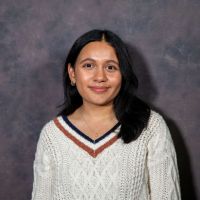
Shailee Shah
CKI Past Presidents Scholarship
Shailee Shah’s commitment to combating food insecurity began in middle school, when she built three Little Free Pantries to provide 24/7 access to essential, shelf-stable food items for all who needed them. Shah is the founder and director of The Spark Momentum, a 501(c)(3) organization that spreads awareness about food insecurity and teaches others how to build Little Free Pantries in their communities. She credits Circle K International at the New Jersey Institute of Technology with providing the platform and support to expand this passion project. She has served as treasurer and president of the club, which has built and operates two more pantries in underserved communities. The first received a Tomorrow Fund grant from the Children’s Fund. Shah is a freelance artist who has served as copresident of the Pre-Health Society, a neuroscience research assistant at New Jersey Medical School and a hospitalist medical scribe. She currently works as an intern with the Biobanking Compliance Program at the New Jersey Department of Health and volunteers as an Emergency Medical Technician. “Every call reinforces my passion for medicine, not just in treating individual patients, but in addressing the broader inequities that affect access and outcomes,” Shah says. “My CKI experiences have taught me that meaningful change happens when leadership is driven by empathy and action.” Shah’s goals include reducing mental health stigma as a neuropsychiatrist and establishing Little Free Pantries in every county in New Jersey, U.S.

Hasan Ghafoor
John E. Mayfield CKI Scholarship
“In my family,” Hasan Ghafoor says, “our faith informed us that you cannot eat while your neighbor goes hungry.” He could see that his community in Windsor, Ontario, Canada, struggled to address homelessness and healthcare. “I knew that I wanted to play a role in addressing these needs, but I was uncertain how until I came across CKI during university.” Ghafoor served the University of Windsor’s Circle K International club as president and the Eastern Canada District as events chair and governor. In these roles, he focused on initiatives to provide food, healthcare access and more than 500 hygiene kits to local populations experiencing homelessness. The University of Windsor CKI’s Hygiene for Hope program received a Tomorrow Fund grant from the Kiwanis Children’s Fund. Outside of CKI, Ghafoor spreads awareness of homelessness in his community as host and producer of the campus radio show “Word on the Street.” He was also copresident of the MusicBox Children’s Charity, which organizes music education for underprivileged children, a peer mentor for the University of Windsor’s Outstanding Scholars Program and a volunteer teacher of elementary school students in its Let’s Talk Science program. While pursuing a career as a physician, Ghafoor interns at a respirology clinic and a retina clinic, and he volunteers as a pediatrics assistant and as a rehabilitation aid. He also works part-time as a coach for weekly sports programs.

Riya Goyal
Kiwanis Children’s Fund Scholarship
Riya Goyal is a computer science and mathematics major at Stockton University in New Jersey, U.S. She has been a member of Circle K International for four years and currently serves on the CKI board’s Brick x Brick Committee. She says working with Brick x Brick has been an eye-opening experience because “we weren’t just tackling problems; we were bridging cultures, creating connections and turning ideas into tangible change.” Goyal began her university career with “a deep desire to help international students navigate the challenges of college life.” She created a community by mentoring high school and college students in the Success Scholars Program; as a team lead in the Governor STEM Scholars program; as a volunteer math tutor for Encorps and SchoolHouse; and as a math and computer science tutor, admissions ambassador and resident assistant for Stockton University. She is founding president of the Stockton International Student Organization, president of the Stockton Honors College and Alpha Lambda Delta National Honors Society, and member of the Student Senate Academic Affairs Committee and School of Business Student Advisory Board, among many other organizations. In an internship for the Council for Advancement and Support of Education, Goyal has already conducted research on leveraging artificial intelligence tools for philanthropy.

Samuel Zheng
Kiwanis Children’s Fund Scholarship
Also a student at Stockton University, Samuel Zheng majors in biology. He has served CKI at the club, division, district and international levels over three years, including as lieutenant governor of the Garden Division, district editor, Brick x Brick Committee member and international member experience chair. He says that his experience in CKI has inspired him to take on other leadership roles, including as co-vice president of the Stockton University Chemistry Society and historian for Delta Epislon Mu, a professional fraternity for students in healthcare fields. CKI also has helped him uncover a passion for teaching and mentorship, leading to roles as a teaching assistant for a physics class, a math and science tutor at Stockton University’s tutoring center, and an engagement leadership team member in the university’s Center of Community Engagement and Service Learning. In the latter role, Zheng helps underserved students ages 5-12 with their homework, forming strong bonds with some of the children. “Being in Circle K International has pushed me to serve directly in my communities,” he says, “and face issues head-on that many people might not be aware of.”
Visit the Kiwanis Children’s Fund Scholarship Opportunities page for information about scholarships distributed by the Children’s Fund, including who to contact with questions and award notification dates.
